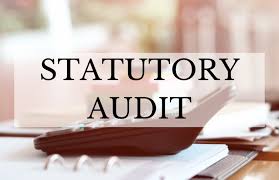Statutory Audit Requirements for Law Firm
Entities that are subject to statutory audit requirements for a law firm can vary based on jurisdiction and regulations. In general, statutory audit requirements often apply to entities that meet certain financial and operational thresholds.
While I can’t provide an exhaustive list, I can give you a general idea of the types of entities that might be subject to statutory audit requirements for a law firm:
1. Corporations:
Publicly traded corporations and larger private corporations often need to undergo statutory audits due to their size, complexity, and the potential impact they have on the economy.
2. Limited Liability Companies (LLCs):
Depending on the jurisdiction and the specific regulations in place, certain LLCs might be required to undergo statutory audits, particularly if they exceed certain financial thresholds.
3. Partnerships:
Limited liability partnerships (LLPs) and other types of partnerships might be subject to audit requirements if they meet specific criteria, such as generating significant revenue or having a certain number of partners.
4. Financial Institutions:
Banks, credit unions, and other financial institutions are usually subject to stringent regulatory oversight, often including mandatory audits to ensure financial stability and compliance.
5. Nonprofit Organizations:
Larger nonprofit organizations that receive significant funding, either from government grants or donations, might be required to undergo audits to demonstrate proper use of funds.
6. Government Entities:
Certain government-owned corporations or agencies might have audit requirements to ensure transparency, accountability, and the proper use of public funds.
7. Insurance Companies:
Due to the nature of their operations and the financial risks they handle, insurance companies often face audit requirements.
8. Large Real Estate Entities:
Companies engaged in significant real estate transactions or property development might be subject to audits due to the high value of assets involved.
9. Publicly Funded Entities:
Entities that receive substantial funding from public sources might be subject to audits to ensure efficient and appropriate use of taxpayer money.
It’s important to note that the exact criteria for mandatory audits can vary greatly depending on the legal and regulatory framework of each jurisdiction.
Consultation with legal experts and compliance professionals is crucial to accurately determine which entities a law firm would need to audit based on the specific rules applicable in their location.
To visit: https://www.mca.gov.in/
For further details access our website: https://vibrantfinserv.com

